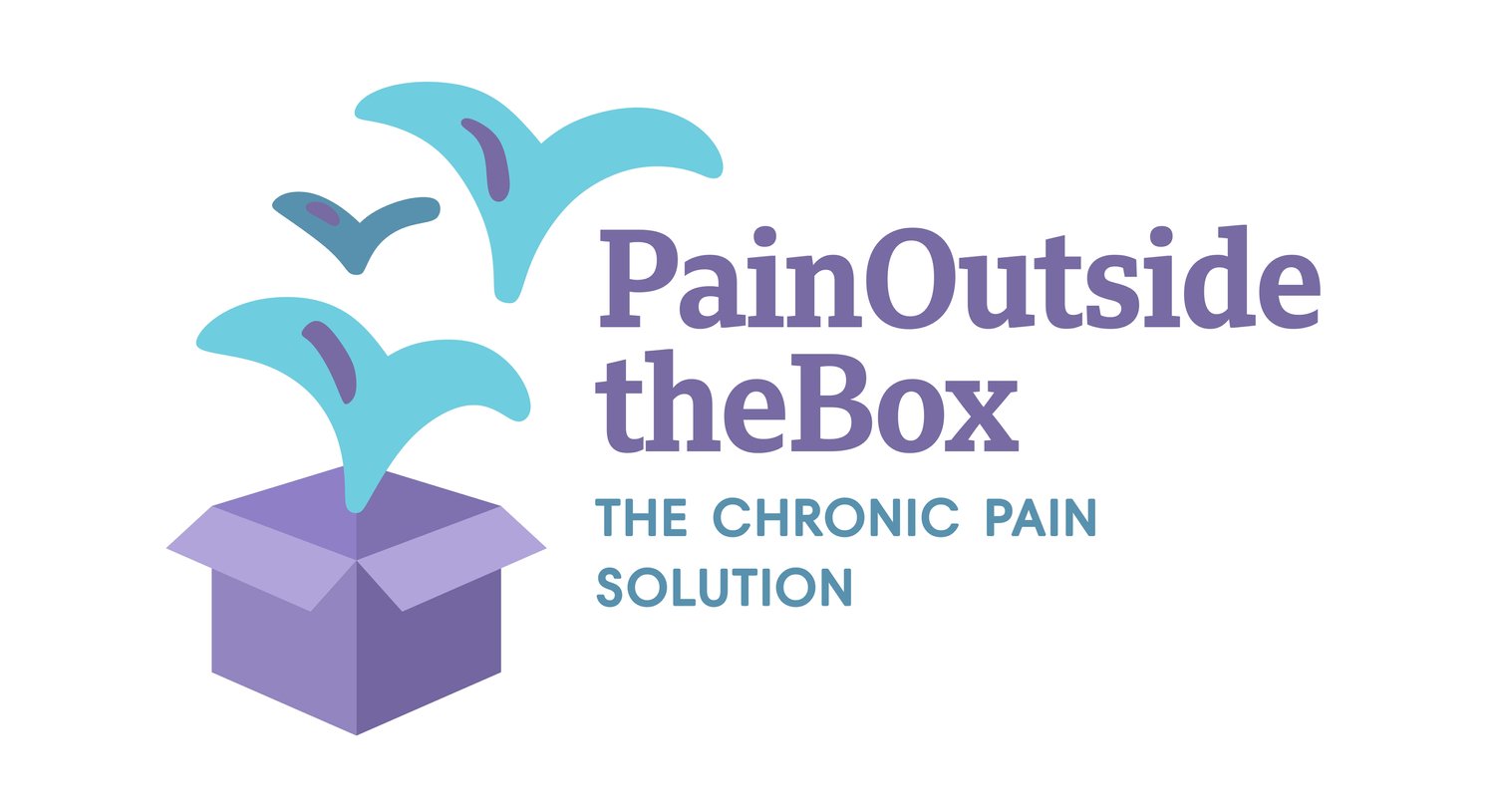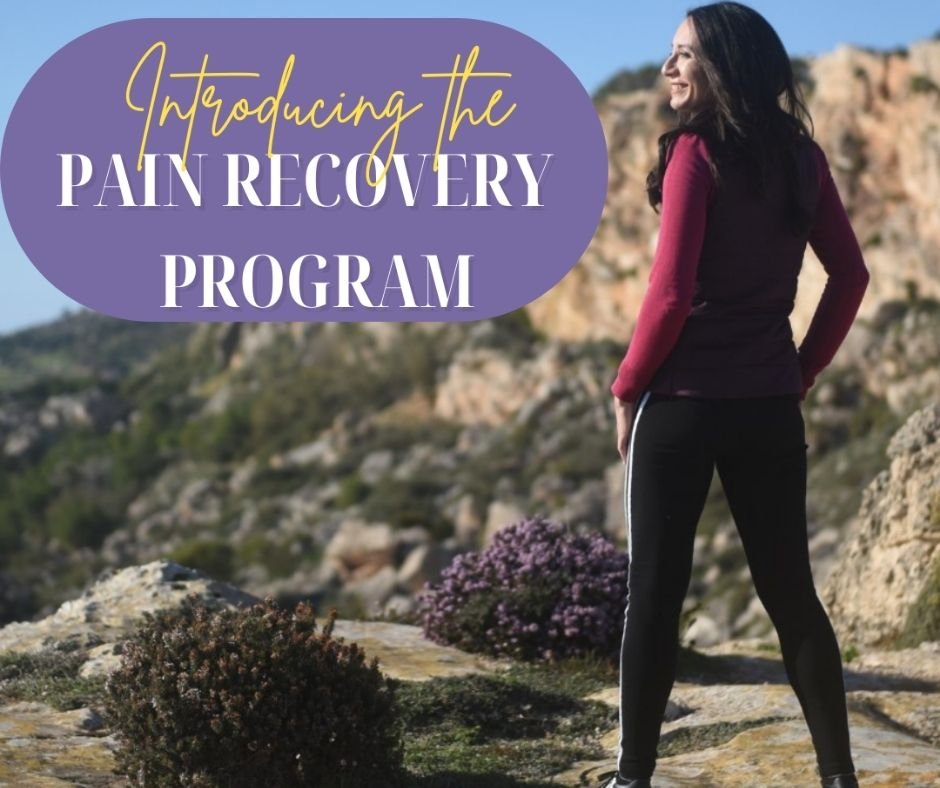Have Patience & Forgive Yourself: How to approach Chronic Pain (TMS) Recovery for better results
Have Patience & Forgive Yourself: How to approach Chronic Pain (TMS) Recovery for better results
When I speak with individuals who are struggling with chronic pain, and who have started exploring the mindbody connection and the concept of Tension Myoneural Syndrome, a few common patterns emerge. These patterns often hinder progress, making healing feel like an uphill battle. The good news is, recognizing these patterns can be the first step toward overcoming them.
So let’s explore three crucial elements—focus, self-compassion, and patience—that can transform your journey of recovery from chronic pain.
1. the diminishing power of focus (slow and steady is the way to go!)
In today’s world, it seems like we're constantly bombarded with distractions. With social media offering a constant stream of videos, ads, and bite-sized information, our attention spans have been eroded over time. Have you ever noticed how difficult it has become for you to finish a book from cover to cover, or how easy it is to bounce from one post to the next without really absorbing or reflecting on any of it?
This lack of focus can be particularly challenging when working with conditions like Tension Myositis Syndrome (TMS), where healing requires a deep, reflective process. TMS work is not about simply consuming content—whether it's a video or an article—but about truly understanding the nature of your condition and processing how it applies to your life.
The real work happens when you slow down and give yourself the space to internalize information. It's about integrating insights from resources, being patient with the process, and acting consistently over time. Rushing through material or skipping steps might feel efficient in the moment, but it often leaves you feeling mentally scattered and disconnected from the deeper work of healing.
Tip: Give yourself permission to read, reflect, and apply what you learn gradually. Healing from chronic pain requires focus and the ability to work through your issues thoughtfully, not quickly.
2. Patience Over Perfection: Let go of the Urgency to Heal!
Healing from chronic pain, especially when working with TMS or mindbody approaches, is not a race. Yet, many of us approach recovery with the same urgency that drives our modern lives—expecting immediate results, setting deadlines, and pushing ourselves to "fix" our pain as quickly as possible.
The reality is that recovery doesn't work this way. Pressure and the expectation of immediate improvement often keep us stuck in a cycle of stress, triggering the body's fight-or-flight response. This heightened state of anxiety and tension can make healing even more difficult.
Instead of rushing to "get better" by next week or next month, try to let go of the need for quick fixes. Paradoxically, by releasing this urgency, you actually create space for your body to relax, unwind, and begin the healing process. The more you try to force recovery, the more resistance you may create within your body and mind. This resistance to your current physical and emotional state usually amplifies symptoms, as it leads to the release of more stress hormones into your system.
Tip: Trust the process and give yourself the time and space to heal without pressuring yourself. Release the need for a specific timeline and focus on the journey, not just the destination.
3. Self-Compassion: The Power of Forgiveness in Healing
One of the most common struggles I see in those with chronic pain is a lack of self-compassion. Many people are harsh on themselves, feeling guilty or frustrated about their pain or their perceived lack of progress. This internal battle only adds to the stress and emotional strain, further hindering healing.
Being self-compassionate means accepting where you are right now, without judgment. It’s about forgiving yourself for being in pain, for struggling, and for having moments of fear or frustration. Understand that your symptoms are just a reflection of your current emotional state, and your body is not the enemy (and neither is your brain!)
Change starts now, in this moment. What happened in the past can’t be undone, but you can choose to be kinder to yourself moving forward. The act of forgiving yourself, especially for feeling anxious or fearful about your pain, releases the mental resistance that often exacerbates physical discomfort. When we stop fighting against ourselves, we release the tension that we’ve been holding onto.
Tip: Treat yourself with the same kindness and understanding that you would offer to a friend. Healing becomes easier when you are gentle with yourself and stop holding onto past mistakes or fears.
4. Focus on the Process, not the End Result.
Healing from chronic mindbody pain is, at its core, a process. It’s not about one breakthrough moment or watching a series of videos until you have all the answers. It’s about engaging with your healing journey from an exploratory perspective, and embracing the ups and downs along the way.
This is why it's so important to avoid skipping lessons or rushing through a mindbody program just because you think certain aspects don't apply to you. You never know what insights you may uncover along the way, as you follow the process and take your time to complete all the tasks and action steps recommended by a TMS book, by your Coach or Practitioner. Besides just healing your chronic pain, you may also end up making positiver change in other areas of your life, which will lead to more personal fulfilment and success!
Tip: Don’t rush through the healing process. Engage with each part of your journey with curiosity and patience. The path to recovery is rarely linear, and it’s important (and extremely rewarding) to let yourself explore the nuances of your situation along the way.
The Bottom Line: Trust Yourself and the Process
When you combine focus, patience, and self-compassion, you create a strong foundation for healing. It’s not about perfection, and it’s certainly not about rushing to get better. It’s about taking the time to understand your pain, embracing the discomfort that may come with change, and forgiving yourself for any perceived shortcomings along the way.
Your healing journey is personal and unique to you, and it’s important to approach it with an open heart, a curious mind, and a steady hand. Let go of the need for immediate results, and allow yourself to be present with the process. As you do, you’ll discover that the journey itself holds the keys to your transformation.
So, as you continue on your path to healing, remember: consume less information at a time to avoid overwhelming yourself, reflect how or whether the teachings apply to you, and practice kindness every step of the way!
If you’re ready to take yourself through the TMS process, consider my Recovery Program, Pain Free Breakthrough. In it, I guide you through the healing work required to overcome chronic symptoms and share the most effective approaches and mindset shifts that me and my clients have found effective.



